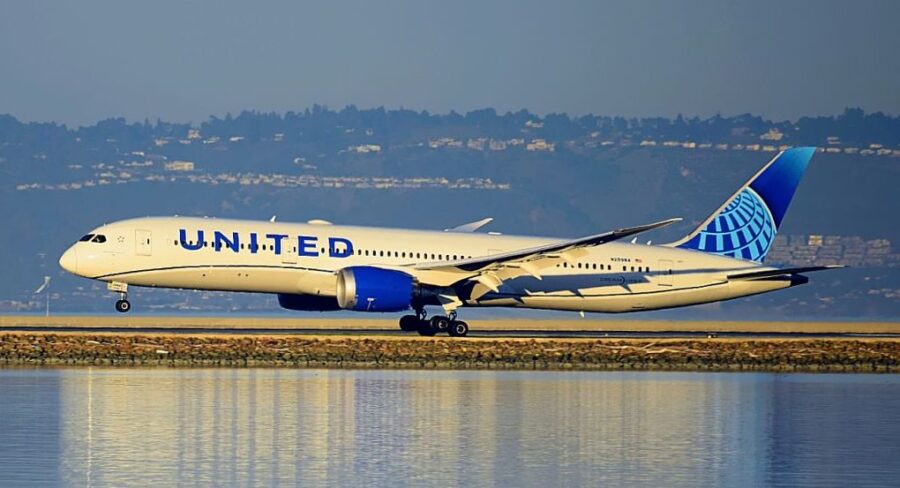United Airlines 787 Declares Mayday After Engine Failure, Lands Safely

A dramatic in-flight emergency unfolded on July 25 when a United Airlines Boeing 787-8 Dreamliner en route to Munich from Washington Dulles International Airport declared a “Mayday” moments after takeoff due to a serious engine malfunction. The crew’s rapid and professional response, including an emergency fuel dump and coordinated return, ensured the aircraft landed safely without injuries.
The Emergency: A Mayday Call
United Airlines Flight UA108 (787-8 registration N27901) departed Dulles at 5:40 p.m. for Munich when the left engine suffered a major failure shortly after takeoff. Realizing the critical nature of the situation, the pilots immediately issued a “Mayday” distress call to air traffic control, signaling a life-threatening emergency. The urgency of the crew’s communication reflected the severity of the incident and the need for swift action.
Emergency Fuel Dump
One of the first steps taken was initiating a fuel dump—a standard emergency procedure for widebody aircraft. Since the 787-8 was still at near-full takeoff weight, it was too heavy to land safely. Fuel dumping reduces the aircraft’s weight to prevent overstressing the landing gear and braking system during an emergency landing.
As the aircraft circled over the Washington D.C. area, flight tracking data from Flightradar24 showed a series of holding patterns at approximately 6,000 feet. This maneuver allowed the crew to stabilize the aircraft, complete necessary checklists, and burn off or dump fuel before returning.
Safe Landing at Washington Dulles
Thanks to seamless coordination between the flight crew and air traffic controllers, the aircraft made a safe return to Dulles. Despite the life-threatening circumstances, the pilots remained calm and composed, executing emergency procedures with precision. The Dreamliner touched down safely, and all passengers and crew disembarked without injury.
Why It Matters: Training, Teamwork, and Technology
This incident is a powerful reminder of the importance of pilot training and airline safety protocols. Pilots undergo extensive simulation training to handle engine failures, fuel dumps, and other in-flight emergencies. Their ability to act decisively under pressure is critical to ensuring passenger safety.
The Boeing 787-8 is designed with redundant systems, including twin engines capable of flying the aircraft safely even if one fails. Moreover, the role of air traffic control and ground crews in managing such emergencies is crucial. Their support and clear communication make the difference between a controlled emergency and a potential disaster.
A Testament to Aviation Safety Culture
The successful outcome of Flight UA108’s emergency highlights the aviation industry’s deep-rooted safety culture. From the pilots’ quick thinking to the robust design of the aircraft, every layer of defense worked exactly as intended.
What could have ended in tragedy became a testament to professionalism, preparedness, and teamwork. Incidents like this remind us why flying remains one of the safest forms of travel—thanks to the rigorous training and expertise of aviation professionals who put safety first, always.
Related News: https://airguide.info/?s=Boeing+787, https://airguide.info/category/air-travel-business/travel-health-security/
Sources: AirGuide Business airguide.info, bing.com, travelandtourworld.com
